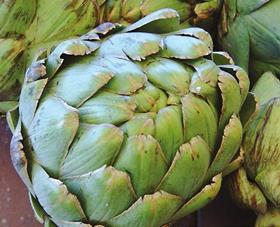
Children can learn to eat new vegetables if introduced to them regularly before the age of two, a University of Leeds study has suggested.
Even the fussiest of child eaters can be encouraged to eat more greens if offered them between five and ten times, it found.
The research team gave artichoke puree to 332 children aged between four and 38 months from the UK, France and Denmark.
One in five ate the whole lot, while 40 per cent of the children involved in the study learned to like artichoke.
The study also cast doubt over the much-heralded belief that vegetable tastes need to be masked in order for children to eat them.
During the study, each child was given between five and ten servings of at least 100g of artichoke puree.
The puree was either served straight, sweetened with added sugar, or had vegetable oil mixed into the puree to add energy.
The researchers found there was little difference in the amount eaten over time between those who were fed the basic puree and those who had the sweetened one, suggesting that making vegetables sweeter does not encourage children to eat more.
Overall, they found that younger children ate more artichoke than older children in the study.
Professor Marion Hetherington, study author from the Institute of Psychological Sciences at Leeds, said this was because children become picky and wary at a certain age.
She said: 'If they are under two, they will eat new vegetables because they tend to be willing and open to new experiences.
'After 24 months, children become reluctant to try new things and start to reject foods - even those they previously liked.'
NHS guidelines suggest that it is best to start weaning children on to solid foods at six months.






No comments yet